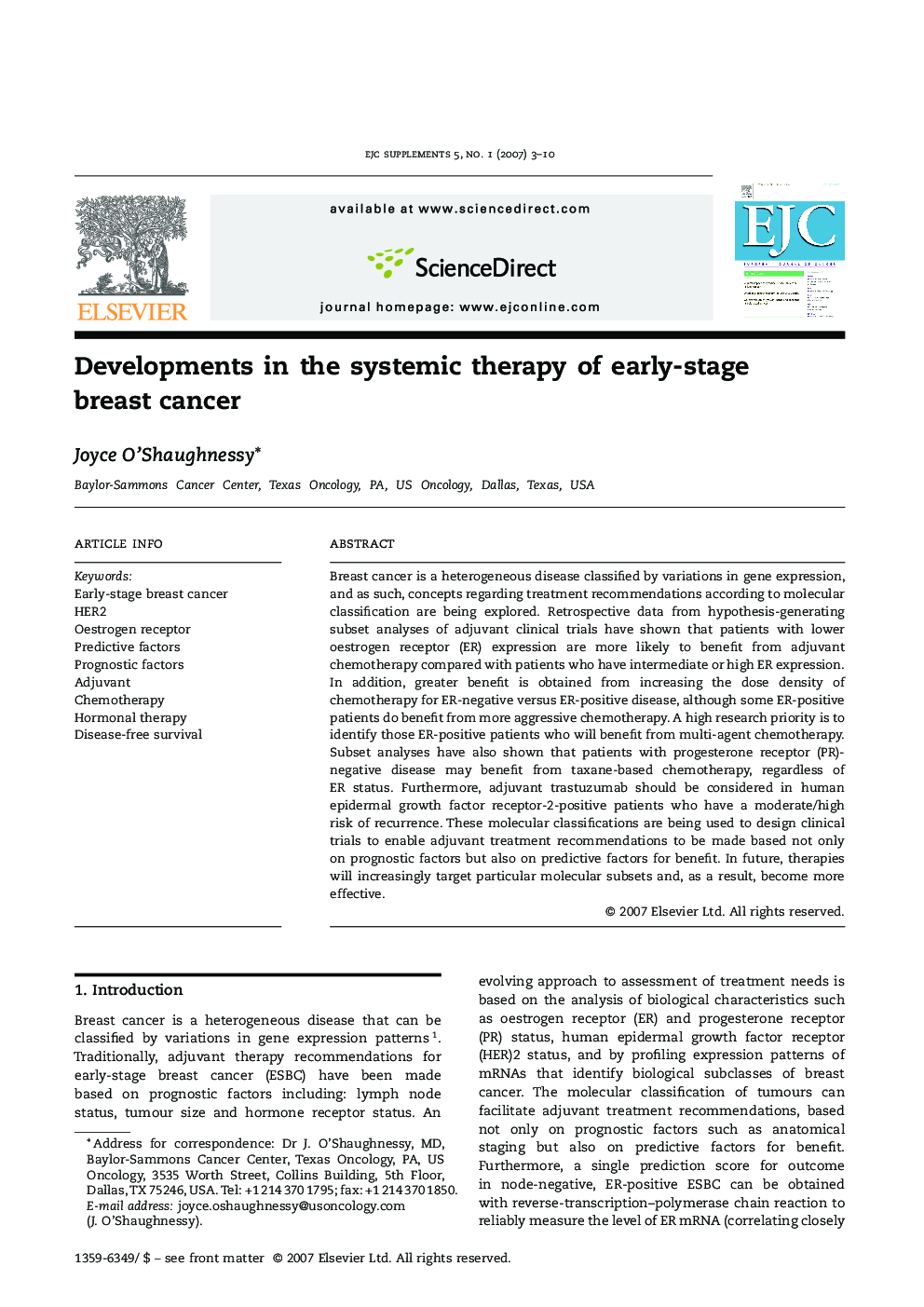| Article ID | Journal | Published Year | Pages | File Type |
|---|---|---|---|---|
| 2129112 | European Journal of Cancer Supplements | 2007 | 8 Pages |
ABSTRACTBreast cancer is a heterogeneous disease classified by variations in gene expression, and as such, concepts regarding treatment recommendations according to molecular classification are being explored. Retrospective data from hypothesis-generating subset analyses of adjuvant clinical trials have shown that patients with lower oestrogen receptor (ER) expression are more likely to benefit from adjuvant chemotherapy compared with patients who have intermediate or high ER expression. In addition, greater benefit is obtained from increasing the dose density of chemotherapy for ER-negative versus ER-positive disease, although some ER-positive patients do benefit from more aggressive chemotherapy. A high research priority is to identify those ER-positive patients who will benefit from multi-agent chemotherapy. Subset analyses have also shown that patients with progesterone receptor (PR)-negative disease may benefit from taxane-based chemotherapy, regardless of ER status. Furthermore, adjuvant trastuzumab should be considered in human epidermal growth factor receptor-2-positive patients who have a moderate/high risk of recurrence. These molecular classifications are being used to design clinical trials to enable adjuvant treatment recommendations to be made based not only on prognostic factors but also on predictive factors for benefit. In future, therapies will increasingly target particular molecular subsets and, as a result, become more effective.
